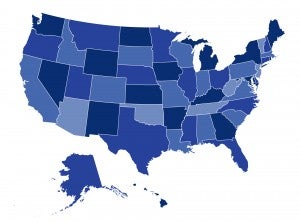States Take the Lead with Policies to Protect Residents with Chronic Conditions from High Out-of-Pocket Drug Costs

Lowering the cost of prescription medication has broad support over the political spectrum and there were many campaign promises to reduce prices. But to date, there’s been little federal action. States, however, are taking the lead with policies designed to protect consumers with chronic conditions from high out-of-pocket costs associated with expensive specialty drugs. A new CHIR brief details the findings from a 50-state survey of such policies and observations from supplementary interviews with state regulators, insurance company representatives and consumer advocates.





